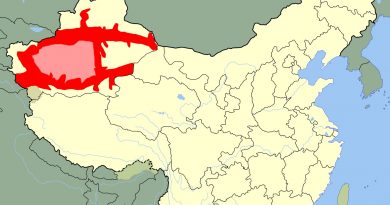Greta Thunberg: Change is Coming Whether We Like it or Not
Judy Koren
Staff Writer
Greta Thunberg’s unapologetic and fierce commitment for climate justice began when she was only nine years old. The New Yorker quoted Greta, saying, “they were always talking about how we should turn off lights, save water, not throw out food.” She continued, “I asked why and they explained about climate change. And I thought this was very strange. If humans could really change the climate, everyone would be talking about it and people wouldn’t be talking about anything else. But this wasn’t happening.”
Greta’s movement began when she was 15 years old outside the Swedish parliament building. Before a parliamentary election on September 9, she did not attend school for three weeks. Instead, Greta sat in front of the parliament building in protest for a radical response to climate change. After the elections, Greta began going to school, but only four days a week. Each Friday, Greta sat in front of the parliament building, which is an action that inspired millions of students all over the globe to participate in “Fridays for Future.” According to Fridays for Future website, there have been 4,593 documented marches in 154 countries around the globe.
Greta grew up in Sweden, a country regarded as a model for environmental sustainability and activism to many people from all over the world. Greta, on the other hand, does not view Sweden in the same light. In August 2018, Greta was interviewed by We Don’t Have Time, a social network for climate action for the Twitter-owned site, Medium. The title, “Sweden is not a role model,” argues what Sweden prides itself on, as The New Yorker writes, the “most progressive climate legislation in the world.” Meanwhile, Greta watched a debate between party leaders where they said it “made no sense” to curb Sweden’s emissions, “since [they] were such a role model.”
Greta cannot not understand how the party leaders were able to lie, and emphasized that Sweden is not a role model. In fact, according to the World Wildlife Fund for Nature, Sweden emits 11 tons of carbon dioxide per capita every year, ranking eighth in the world for emissions. Greta claims, “We’re the ones who need help.” Among other bold comments, Greta offers a reminder that when people think of “the future,” it does not go beyond 2050. By then, she will not have lived half of her life.
The New Yorker noted that for six years, Greta researched the climate crisis. As revealed in her TEDx talk in Stockholm, Greta was diagnosed with Asperger’s Syndrome, Obsessive Compulsive Disorder, and selective mutism at 11 years old. She attributes her “uncanny ability to concentrate” to her autism. Greta highlights that she “see[s] the world a bit different, from another perspective.” In fact, her autism serves as a “dual purpose;” Greta believes that “[her movement] not only calls attention to climate policy, but it showcases the political potential of neurological difference.”
The TEDx talk allowed for Greta to have a platform that reveals her thoughts about the global climate crisis through the eyes of someone on the autism spectrum. “Everything is black or white,” Greta says, for those with autism. Unlike what society dubs as the “normal” people, who see the gray areas, Greta believes this makes the “normal” the strange ones. When Greta discovered the severity of the global climate crisis, she emphasized, “no one even mentions it.” As this generation lives through the sixth mass extinction, Greta does not understand how it is rarely spoken of, given that this is the norm of the global majority. This serves Greta’s idea that those “on the spectrum” who see in black or white are in fact the normal ones.
Just four months after her first strike on the steps of the Swedish Parliament building, Greta impressed audience members, which included COP24 President, Michal Kurtyka and United Nations Framework Convention on Climate Change (UNFCCC) Executive Secretary Patricia Espinosa, as she addressed the COP24 plenary session, the 24th conference of Parties to the UNFCCC for two weeks, in Katowice, Poland. With videos on Instagram posted by activists such as Leonardo DiCaprio and coverage from major global news networks like CNN, the speech sent Greta and her fight for climate justice viral.
Greta addressed world leaders and distinguished guests very directly, beginning with, “you only speak of green eternal economic growth because you are too scared to be unpopular.” Throughout the entirety of her address, she remained calm, only raising her voice a few times. At COP24, some negotiations reacheded an agreement, but others were reportedly tabled until next year, at COP25 in Chile.
Greta continued, adding, “You are not mature enough to tell it like it is,” and suggested there is no hope “until you start focusing on what needs to be done rather than what is politically possible.” She predicted they will ignore those who advocate for climate justice again in the future, as they are doing now. Ending this viral address, Greta fiercely stated that change is coming “whether you like it or not,” and that the “real power belongs to the people.”
Days earlier in Katowice, Greta made a smaller address seated between the United Nations Secretary General António Guterres and Executive Secretary Patricia Espinosa. The speech, posted on the Friday’s For Future website, points particularly to failures of global political leaders. In fact, as Greta promised to motivate others to effect change where change is necessary, she deemed the behavior of global leaders as “childlike.” She questioned the global pact towards climate justice, wondering how it is possible to expect countries like India, Colombia, or Nigeria “to care about the climate crisis if we, who already have everything, don’t care even a second about our actual commitments to the Paris Agreement?” Throughout different public addresses, Greta has one common theme: questioning the capability of political leaders to create change, and ensuring that younger generations can make the change that current global leaders see as politically impossible.
After lobbying for climate justice and equity for just seven months, news broke that Greta Thunberg was nominated for a Nobel Peace Prize. Time reported that this nomination is in “recognition of her work leading a youth campaign to halt climate change.” This nomination comes after the release of TIME’s Most Influential Teens of 2018; Greta was named one of the 25 young influencers. Norwegian parliamentary representative Freddy Andre Oevstegaard was one of the three Norwegian lawmakers who submitted Greta’s name. When asked why by Norwegian media outlet VG, the representative said the climate crisis “may be one of the most important causes of war and conflict.” Oevstegaard continued, “the massive movement Greta has set in motion is a very important peace contribution.” According to BBC, if Greta were to win this prestigious honor, she would be the youngest recipient in Nobel history.
Just one month after Greta was nominated for the Nobel Peace Prize, she gave one of her most emotional speeches yet. Posted to Fridays for Future, the focus of her address in front of the European Union Parliament in Strasbourg was the comparison of Earth to a burning house. Greta urged everyone to “panic,” and went on to detail the devastating impacts of human intervention on the environment due to climate change. The audience and viewers around the world saw a visible and powerful break in the strong 16 year old, who had been lobbying and advocating for climate justice and equity for less than a year.
Greta used a burning house to symbolize the destruction of our earth in order to rationalize how rapid climate solutions should be carried out. Greta claimed that if it were someone’s own house burning down, “we would not go on like we do today. You would change almost every part of your behavior, as you do in an emergency.” Greta once again called out global leaders for their inaction and lack of care, pointing out that “you wouldn’t hold three emergency Brexit summits and no emergency summit regarding the breakdown of the climate” if anyone was serious about creating change. This immediately invoked an applause from the audience.
Greta also highlighted that it is “30 years too late” for the celebrations of little change by pointing out the appraisal for Ireland and Norway and their new climate policies. Greta emphasized that these celebrations are not enough. In order to make sufficient change, we must “make the best available science at the heart of politics and democracy.” This is imperative to enable voters to understand the climate crisis and mitigate its effects.
BBC covered Greta’s impact on young people from Denver, Colorado to the Netherlands. Dubbed “the Greta Effect,” Haven Coleman, 13 years old and the co-director of United States Youth Climate Strike, was inspired by Greta to risk her education and strike for climate justice. U.S. Youth Climate Strike is also directed by 16-year-old Isra Hirsi, daughter of Democratic congresswoman Ilhan Omar. Coleman stated that she was invested in climate activism prior to the school strikes, but Greta’s school strikes are what inspired her to begin the same movement in her own town.
In the Netherlands, 11-year-old Lilly Platt is also taking a stand with Greta. According to BBC, Platt is more than ready for change. She stated, “I’m in the generation that has to suffer through this.” Accompanied by her mother, Platt strikes on Fridays for an hour with permission from her school. In addition, she runs Lilly’s Plastic Pick Up, a litter-picking campaign. Platt told BBC that “informing people about single-use plastic and how they can stop using it” is the focus of her campaign.
During her TEDx talk, Greta asked many questions that prompted shaking heads in the audience. The following question: “are we evil?” was followed with silence. After a few long seconds, Greta responded with, “no of course not.” After six years of research and months of advocacy work, Greta believes the climate issue has become the new norm rather than a crisis because the “vast majority doesn’t have a clue about the actual consequences of our everyday life.” In return, the rapid changes required are not possible.
Afterall, Greta’s message always comes back to the lack of attention surrounding the existential crisis. A major theme throughout her campaign and advocacy work is her utter confusion towards the lack of emphasis around the global crisis that threatens every species on the planet. Through it all, Greta believes the world needs both hope and action. Concluding her TEDx talk, Greta stated, “everything needs to change. And it has to start today.”


